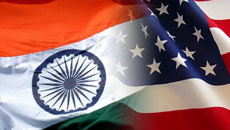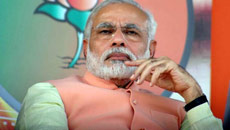The mystery of what kick-started the motion of our earth's massive tectonic plates across its surface has been solved by researchers at the University of Sydney.
There are eight major tectonic plates that move above the earth's mantle at rates of up to 150 millimetres every year and Earth is the only planet in our solar system with such a system in place.
The geological record suggests that until three billion years ago, the earth's crust was immobile so what sparked this unique phenomenon has fascinated geologists for decades.
"We suggest it was triggered by the spreading of early continents and then eventually became a self-sustaining process," said Professor Patrice Rey from the University of Sydney's school of geosciences.
In simple terms, the process involves plates being dragged into the mantle at certain points and moving away from each other at others, in what has been dubbed "the conveyor belt".
Plate tectonics depends on the inverse relationship between density of rocks and temperature.
At mid-oceanic ridges, rocks are hot and their density is low, making them buoyant or more able to float.
As they move away from those ridges they cool down and their density increases until, where they become denser than the underlying hot mantle, they sink and are dragged under.
But three to four billion years ago, the earth's interior was hotter, volcanic activity was more prominent and tectonic plates did not become cold and dense enough to spontaneously sink.
"So the driving engine for plate tectonics did not exist," Rey added.
Instead, buoyant early continents erupted in the middle of immobile plates.
"Our model shows that these early continents could have placed major stress on the surrounding plates. Because they were buoyant they spread horizontally, forcing adjacent plates to be pushed under at their edges," Rey pointed out.
The article appeared in the journal Nature.





